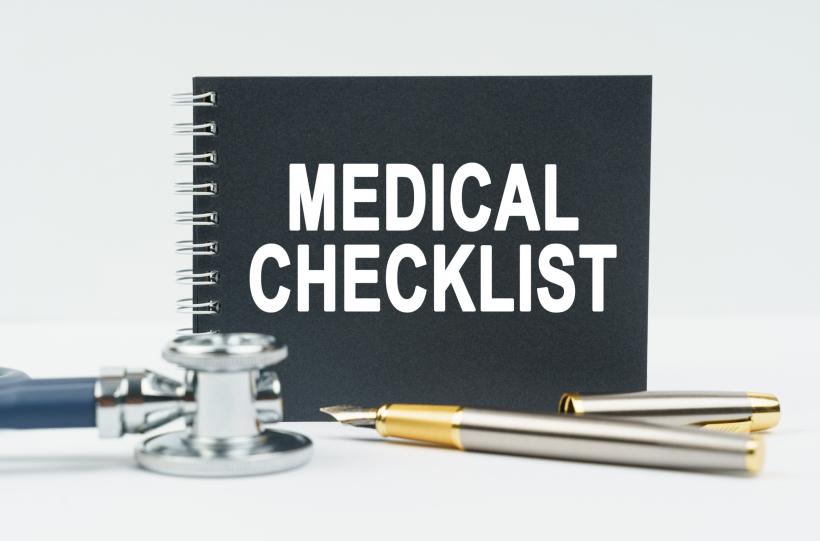
LAST UPDATED: September 12, 2023
Snowbirds who spend part or all of their winters away have many things to take care of related to their medical and health needs before departing for the season.
This is an important part of preparing to go away for an extended period and will reduce the likelihood of medical problems arising and ensure you are prepared should any health issue come up while you are out of the country.
To help you get organized before you leave, here are our top pre-departure health and medical tips for snowbirds.
Annual check-ups
Experienced snowbirds know that the best time to schedule all your medical check ups and annual physical is in the spring, after you return to Canada.
Why? Because if your doctor needs to schedule any procedures or surgeries - or adds, removes or changes any of your medications - it can affect your ability to qualify for travel insurance.
Many travel insurance providers require a stability period of 90 or 180 days - or longer - following a change in your health or medical conditions for those conditions to be covered.
In many cases, scheduling all of your doctor and specialist visits in the spring should allow for enough time to meet those stability period requirements.
Of course, we are not suggesting you avoid doctors in the late Summer and Fall - but that regular scheduled doctor visits should be scheduled in the spring when possible.
In addition, if you do have an issue in that is diagnosed in the Spring that may affect your ability to travel, it may be resolved by the time the Fall rolls around.
Get your shots and bring your records with you
It is best to get all of your vaccinations and immunization shots before leaving Canada, as they may be difficult or expensive to obtain in your destination.
Shots that many snowbirds consider:
- Influenza
- COVID
- RSV
- Shingles
- Pneumonia
- Any other shots you may require depending on where you are travelling.
Remember to bring your COVID records with you just in case they might still be needed, along with a copy of your immunization records such as Tetanus, Shingles, Pneumonia, etc…
Get an adequate supply of all your prescription medications
Snowbirds who spend extended periods outside Canada often need to arrange for larger than normal supplies of their prescription medications in advance to make sure they have enough to last them through the winter.
Many pharmacies will provide up to a 3-month supply of your medication if you request it, but you should check with your pharmacy ahead of time, as well as your doctor(s) to make sure they prescribe enough refills to meet your needs.
If you need more than a 3-month supply – as many snowbirds do – your traditional pharmacy may or may not be able assist you.
However, many snowbirds are now switching to digital Canadian pharmacies that ship your medication to your home in Canada for free, can often provide up to a 6 month supply of your medication at a time (depending on your province of residence) and can sometimes ship your medication to you in the U.S. if you run out.
And always remember when travelling to leave your medications in their original containers with labels that clearly show the name of the medication, the dosage and that they were prescribed for you to avoid issues at customs when leaving and returning to Canada.
Prepare a digital list of all medical conditions, medications and dosages
It is also a good idea to have a copy of your prescriptions with you when you are travelling in case your medications are misplaced or stolen or you require medical treatment while travelling and the treatment provider needs to know which medications you are taking.
You may also want to bring a copy of your medical records. These can be obtained from your doctor in electronic format and saved on your phone, tablet or laptop, and can be very helpful if you require medical treatment.
Bring any medical or wellness supplies you may not find in your destination
Experienced snowbirds have learned to bring other non-prescription items with them in case they are not available in your destination. This could include over the counter medications, vitamins, and other drug store and health food store items you require or prefer.
Many of these items may have different names in other countries - or may not be available at all.
However, remember NOT to bring any cannabis products across the border, as this is illegal. If you are going to a destination where cannabis is legal, you can buy it there, but do not bring it with you across the border in either direction.
Applying for travel medical insurance
All snowbirds should ensure they have adequate travel medical insurance before leaving Canada.
Once you know your travel dates, it’s a good idea to start shopping around for travel medical insurance options to find a policy that works for you, as cost and coverage terms and conditions can vary greatly. It’s usually to a good idea to focus on providers that specialize in assisting snowbirds, as they are often in the best position to understand their unique coverage needs.
Most snowbirds will need to answer a few eligibility questions and complete a medical questionnaire as part of the travel insurance application process, and each provider may ask you for very different information. This requires you to have an in-depth knowledge of your medical history, medical conditions and medications.
Accordingly, before you begin the application process, it is highly recommended that you prepare a detailed list of all of your past and present medical conditions and medications. This will help to significantly speed up the application process and reduce the likelihood of answering a question incorrectly or omitting information, which may result in any claim you have being declined. If you are unsure of how to answer any questions in the medical questionnaire, consult with your doctor and insurance provider before answering.
And remember, after you purchase your travel medical insurance and prior to travelling, you must continue to report ANY changes to your health or medications to your travel provider - this includes but is not limited to starting or stopping a medication, increases or decreases in medication dosages, new medical conditions, changes to existing medical conditions and exploratory testing for possible medical conditions Changes to your medical condition may affect your premiums, coverage eligibility and stability requirements, and failure to disclose these changes can negate your coverage.
Find local healthcare providers in your destination
If you return to the same destination year after year, many snowbirds establish relationships with a local GP and/or specialists for ongoing care while they are in their winter homes.
Having your own GP who becomes familiar with you can be very helpful, particularly if you require ongoing treatment for a chronic condition.
Keep in mind that for emergency medical treatment covered by your travel insurance policy, you’ll need to seek treatment from a care provider your insurance company directs you to, but for all other medical issues, having a local GP can be a big help.
Bring an extra pair of prescription glasses
If you wear prescription glasses, always carry a copy of the prescription when you travel, especially for long periods. AND if you have an extra pair of glasses, bring those along too!
Don’t forget your teeth
As with medical check ups, schedule your dental check ups for just before you leave – especially dental cleaning.
Dental care is always important and if you are away for six months you may want to schedule a cleaning while you are there. Establishing a relationship with a local dentist is always a good idea.
Dental emergencies can also occur such as an abscessed or broken tooth - so having your own dentist you can call is beneficial. Dentists in vacation destinations get extremely busy during the winter season and it can be hard to even get an appointment, so, it is helpful to find one in advance.
And remember to pack any mouth guards or special dental care items you may need.
The bottom line
Going away for all or part of the winter requires a lot of organization before you leave and nothing is more important than being prepared on the medical front.
Hopefully you won’t need any medical or dental services while you’re away, but we all know that this is impossible to predict. Being prepared in advance is always the best approach.
















